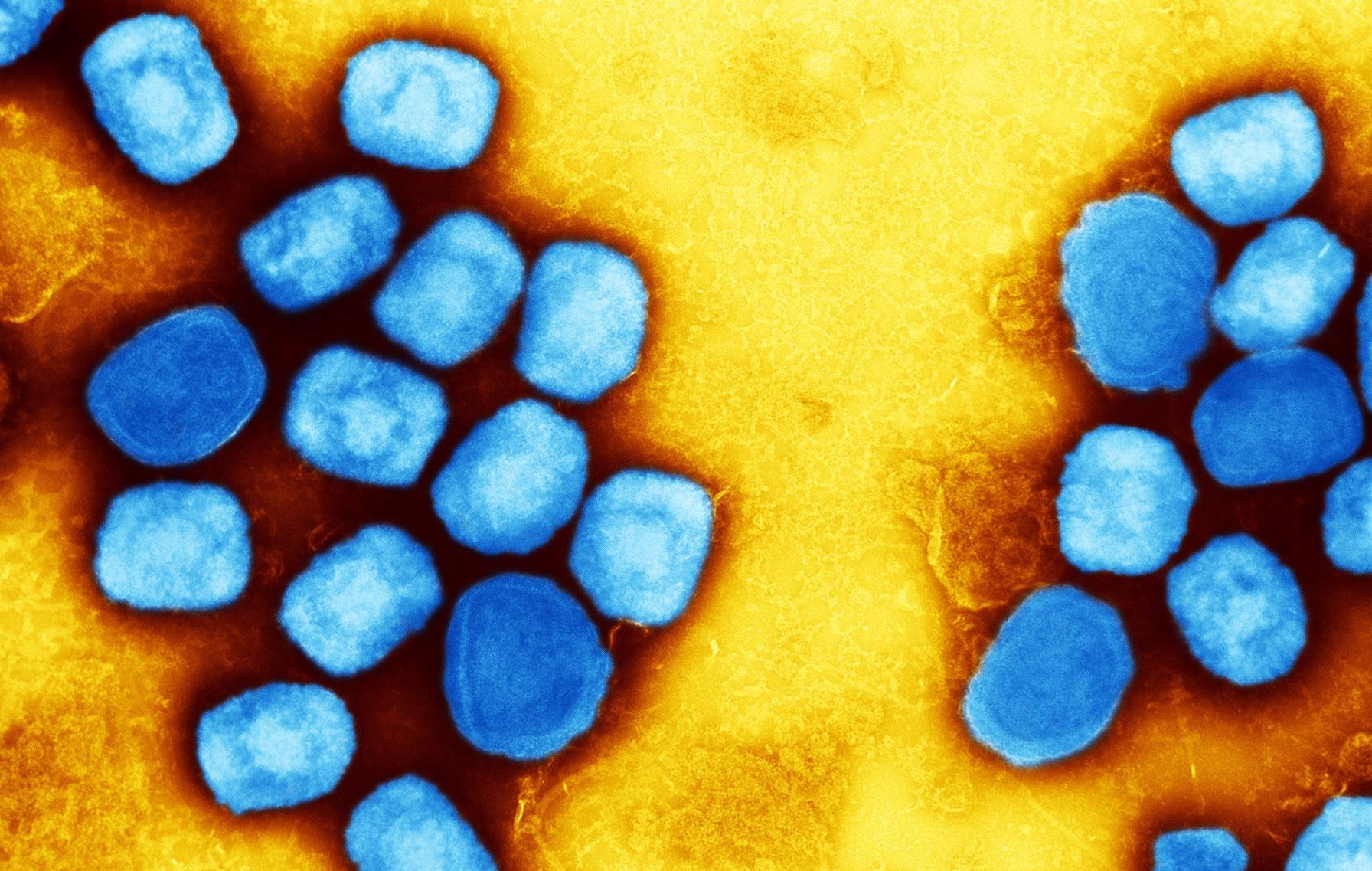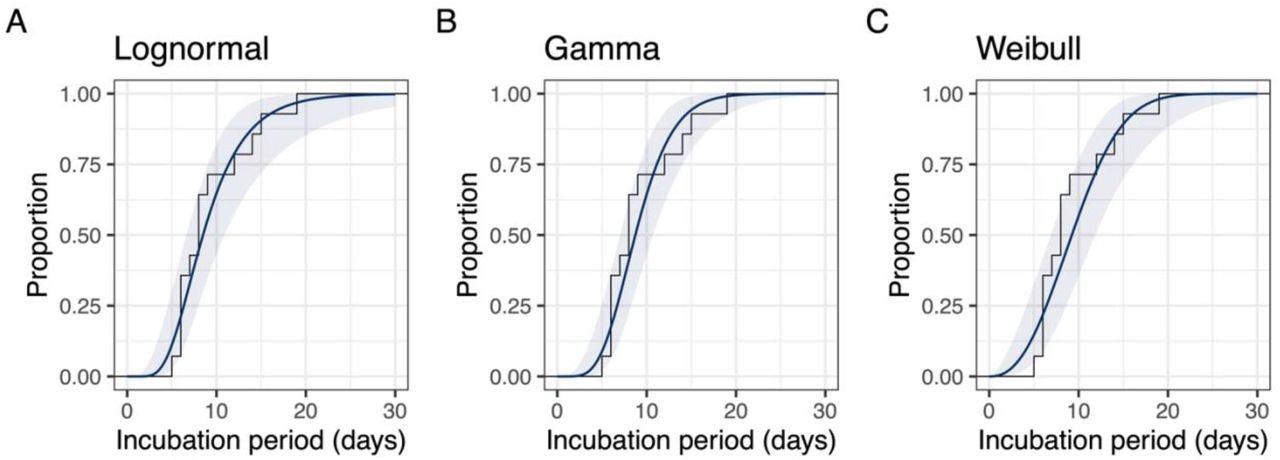In a recent study posted to the medRxiv* preprint server, researchers in the Netherlands estimated the incubation period for monkeypox.
In May 2022, various countries reported outbreaks of monkeypox. However, monkeypox is not endemic to these countries. Nevertheless, public health measures, including active case finding, quarantining close contacts, and contact tracing, are being carried out to stop the transmission of this infection. Between May 6 and June 14 there have been over 1,800 cases reported worldwide
Monkeypox is an infectious virus that can affect both humans and some animals. The most common symptoms include fever, swollen lymph nodes, blisters, and crusted rash. Symptoms usually last between two and four weeks. Children, pregnant women, and those with suppressed immune systems are at higher risk of serious illness.
 Study: The incubation period for monkeypox cases confirmed in the Netherlands, May 2022. Image Credit: NIAID
Study: The incubation period for monkeypox cases confirmed in the Netherlands, May 2022. Image Credit: NIAID

 This news article was a review of a preliminary scientific report that had not undergone peer-review at the time of publication. Since its initial publication, the scientific report has now been peer reviewed and accepted for publication in a Scientific Journal. Links to the preliminary and peer-reviewed reports are available in the Sources section at the bottom of this article. View Sources
This news article was a review of a preliminary scientific report that had not undergone peer-review at the time of publication. Since its initial publication, the scientific report has now been peer reviewed and accepted for publication in a Scientific Journal. Links to the preliminary and peer-reviewed reports are available in the Sources section at the bottom of this article. View Sources
About the study
In the present study, researchers calculated the incubation period for monkeypox based on the reported time of exposure as well as the onset of symptoms for the 18 confirmed cases reported in the Netherlands up to May 31 2022.
A total of 31 monkeypox cases were confirmed via laboratory tests in the Netherlands. The patients were all males aged between 23 and 64 years. At the time of data collection, 18 of the total cases reported the date of symptom onset and the estimated date of exposure in the form of either a single date or a series of consecutive dates. These exposure dates were correlated to when the patient attended an event where the exposure most likely occurred.
The team used parametric distributions to assess the incubation periods observed for the 18 cases having the estimated date of symptom onset and history of monkeypox exposure. Three alternative parametric distributions, including the lognormal, Weibull, and the gamma were used to select the best fitting distribution.

Estimated cumulative density function (colored line) and empirical cumulative density function (grey line) of incubation periods reported for monkeypox cases in the Netherlands.
Results
The study results showed that the incubation period of monkeypox was best characterized by a lognormal distribution, which revealed that the mean incubation period for monkeypox cases was 8.5 days. The team also estimated that almost 2% of all the monkeypox cases would exhibit the initial symptoms more than 21 days after exposure to the virus.
Conclusion
The study findings highlighted a plausible range of incubation periods for monkeypox infections. Therefore, the researchers believe that the current policy of quarantining for 21 days after exposure to monkeypox is sufficient to limit the transmission of monkeypox. However, as the number of cases grows, different routes of monkeypox transmission will surface. Hence, continuous surveillance of the incubation period is necessary to keep monkeypox transmission in check.

 This news article was a review of a preliminary scientific report that had not undergone peer-review at the time of publication. Since its initial publication, the scientific report has now been peer reviewed and accepted for publication in a Scientific Journal. Links to the preliminary and peer-reviewed reports are available in the Sources section at the bottom of this article. View Sources
This news article was a review of a preliminary scientific report that had not undergone peer-review at the time of publication. Since its initial publication, the scientific report has now been peer reviewed and accepted for publication in a Scientific Journal. Links to the preliminary and peer-reviewed reports are available in the Sources section at the bottom of this article. View Sources
Journal references:
- Preliminary scientific report.
The incubation period for monkeypox cases confirmed in the Netherlands, May 2022, Fuminari Miura, Catharina Else van Ewijk, Jantien A. Backer, Maria Xiridou, Eelco Franz, Eline Op de Coul, Diederik Brandwagt, Brigitte van Cleef, Gini van Rijckevorsel, Corien Swaan, Susan van den Hof, Jacco Wallinga, medRxiv 2022.06.09.22276068, DOI: https://doi.org/10.1101/2022.06.09.22276068, https://www.medrxiv.org/content/10.1101/2022.06.09.22276068v1
- Peer reviewed and published scientific report.
Miura, Fuminari, Catharina Else van Ewijk, Jantien A. Backer, Maria Xiridou, Eelco Franz, Eline Op de Coul, Diederik Brandwagt, et al. 2022. “Estimated Incubation Period for Monkeypox Cases Confirmed in the Netherlands, May 2022.” Eurosurveillance 27 (24). https://doi.org/10.2807/1560-7917.es.2022.27.24.2200448. https://www.eurosurveillance.org/content/10.2807/1560-7917.ES.2022.27.24.2200448.